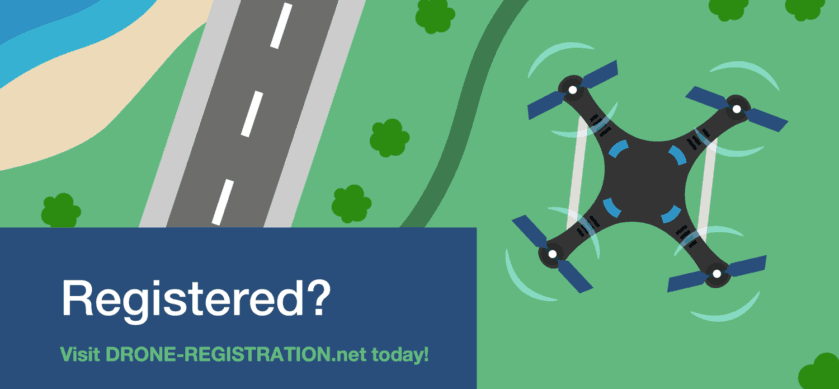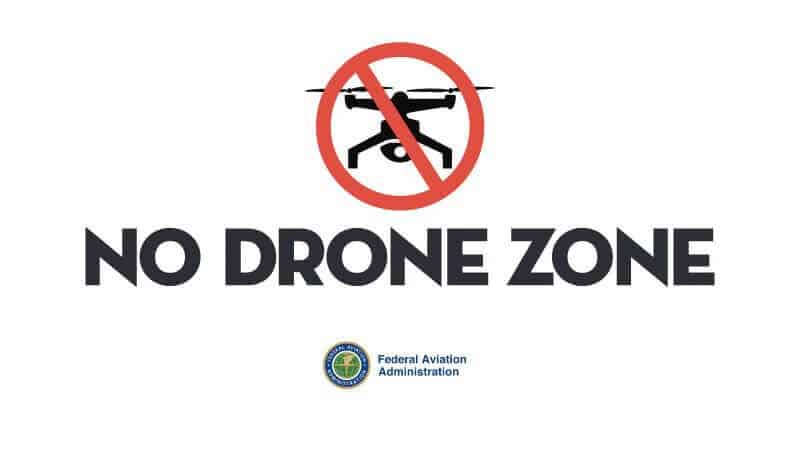The Safe DRONE Act of 2017 is being introduced by four U.S. senators in a bipartisan bill designed to advance the development of the unmanned aircraft systems (UAS) industry and ensure the U.S. keeps pace in the development and implementation of the technology. The Safe DRONE Act of 2017 is being introduced by U.S. Sens. Mark R. Warner, D-Va.; John Hoeven, R-N.D.; Catherine Cortez Masto, D-Nev.; and Dean Heller, R-Nev. There … Read More
FAA Safety Briefing: You and UAS
The FAA Safety Briefing for May/June changes it’s focus to the (UAS) Unmanned Aircraft System or commonly know as Drones. Featuring articles on UAS integration into our airspace, who requires a certificate, where you may find additional resources on the web, law enforcement guides, and more. We’ve included some links below to the full publication as well as individual sections of which may be of interest. Download (PDF) Download (EPUB) Featured … Read More
Military Base Restrictions for Drone Operations
The Federal Aviation Administration (FAA) is using its existing authority under Title 14 of the Code of Federal Regulations (14 CFR) § 99.7 – “Special Security Instructions” – to address national security concerns about unauthorized drone operations over 133 military facilities. This is the first time the agency has instituted airspace restrictions that specifically apply only to unmanned aircraft, popularly known as “drones.” The authority under § 99.7 is limited … Read More
Let’s Go Over the Drone Registration Basics
What are Drones? A drone is an unmanned aircraft system or “UAS.” They are operated remotely and often carry audio and video recording equipment. Drones are becoming increasingly popular for recreational and non-recreational purposes. All drones weighing over .55 lbs (one half pound) must be properly labeled and require drone registration. Who Controls the USA Airspace? According to Federal Aviation Act (49 USC 40103), the federal government alone has control over “navigable airspace.” Navigable airspace … Read More
The FAA’s New Drone Rules Are Effective Today for Non-Recreational Use
The Federal Aviation Administration’s (FAA) new comprehensive regulations go into effect today for routine non-recreational use of small unmanned aircraft systems (UAS) – more popularly known as “drones.” The provisions of the new rule – formally known as Part 107 – are designed to minimize risks to other aircraft and people and property on the ground. A summary is available here. The FAA has put several processes in place to … Read More
Safety Tips for Using Lithium Polymer (Li-Po) Batteries
All remotely piloted vehicles will have at least a battery for the control and some kind of power source for propulsion. The power can come in many forms from rubber band power to gasoline to rocket motors, however, lithium polymer (Li-Po) batteries are far and away the most common energy storage platform for drones and UAVs. Batteries are an easy thing to take for granted. Almost everything we use requires … Read More
What You Need to Know About No-Fly Zones
The Federal Aviation Administration (FAA) is becoming more stringent about No-Fly Zones for consumer drones, in both the commercial and recreational categories. Fortunately, they’re also providing a wealth of information for UAS operators to keep them from falling out of compliance. What’s Off Limits? The FAA is putting heavy emphasis on their partner drone education program, Know Before You Fly. Here you’ll find a run-down of your flight path restrictions, … Read More
Steps to a Safe, Successful Drone Flight
With the public’s ever-increasing negative perception of drones, safe and responsible flying is something every pilot should be doing. Although many variables factor into each flight, there are several steps you can take to guarantee every flight you perform is completed as safe as possible. Numerous safety features are being added to new drones as they come out, such as GPS stabilization, obstacle avoidance, and even geo-fencing that prevents flying … Read More
Drone Laws 101
Within the United States, laws pertaining to drones that deal with personal or recreation use tend to have a reputation of being vague and ambiguous. The FAA has also recently introduced new requirements for drone registration that seem intimidating at first, however the reality is that drone laws and drone registration within the United States are relatively simple and easy to understand. Always fly as safe as possible by following … Read More

